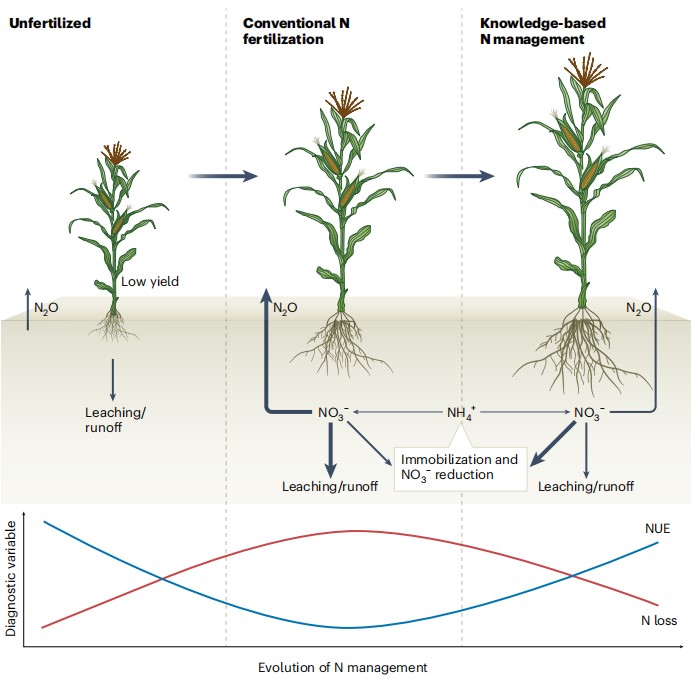Scientists of South China Botanical Garden comment on the evolution of agriculture nitrogen management
The drive to increase crop production to meet the increasing food demand has led to excessive use of nitrogen fertilizers, but nitrogen use efficiency has not increased accordingly. Rather, excess nitrogen released into the environment has caused severe environmental pollution. To understand the status of knowledge-based nitrogen management strategies to improve nitrogen retention and increase its use efficiency, a global meta-analysis was conducted by Elrys et al. (2023, 10.1038/s43016-023-00888-6) published in Nature Food.
A comprehensive review of the meta-analysis was carried out by Prof. HOU Enqing’s team and published in Nature Food. The original study evaluated four knowledge-based nitrogen management strategies on a global scale and found that synthetic nitrogen fertilization could increase greenhouse gas emissions (N2O) and exacerbate soil nitrogen loss, while compound fertilization with organic fertilizers could retain more nitrogen than nitrogen fertilizer alone. Nitrification inhibitors could promote soil-plant nitrogen retention but could affect nitrogen use efficiency. Therefore, the study concluded that the integrative application of knowledge-based N management practices should involve the combined use of nitrification inhibitors with organic and inorganic fertilization.
Reviewing these findings, the research team led by Prof. HOU Enqing constructed a pathway showing the evolution of nitrogen management and the potential of knowledge-based nitrogen to increase nitrogen use efficiency and crop yield while reducing environmental pollution (Figure 1). They stressed that emphasis must be placed on the specific timing of the crop growth stage, where nitrogen requirements can vary among crops and soil conditions. Considerable attention must also be placed on soil characteristics, water regimes, crop species, and tillage practices when assessing the impact of advanced nitrogen management. They recognized the additional human or financial commitments that should be considered when implementing advanced management strategies. Future research directions suggested by the team include considering the effect of climate change, atmospheric nitrogen deposition, region-specific socio-economic factors, and crop variety differences in time and pattern of N requirement when evaluating advanced nitrogen management. For additional information, please visit the link to the paper: https://www.nature.com/articles/s43016-023-00893-9.

Fig. 1. The evolution of N management towards knowledge-based N management practices and their advantages in increasing N retention, increasing NUE,
and reducing N loss. The size of the arrows indicates the comparative magnitude of N loss or retention.
File Download: